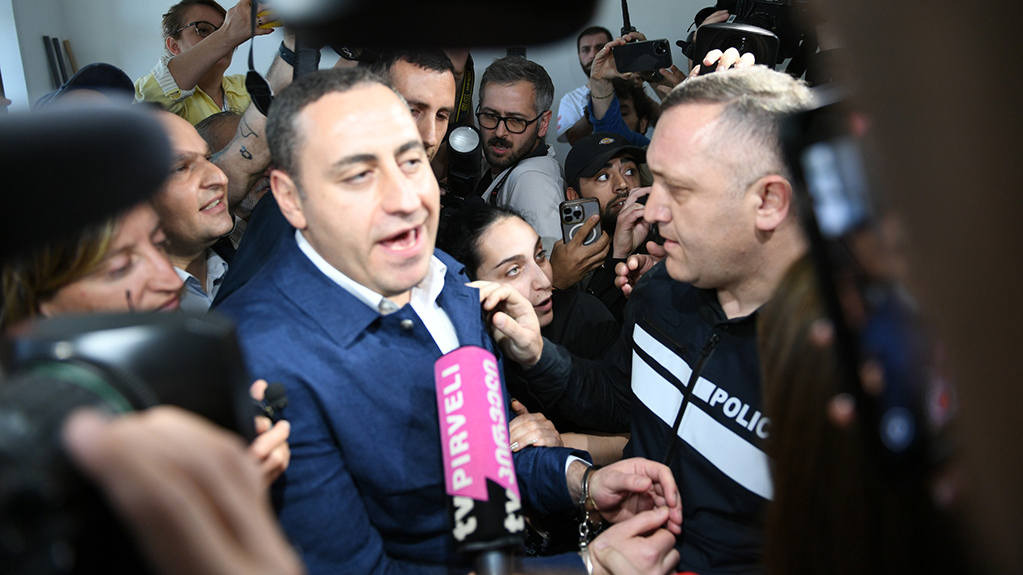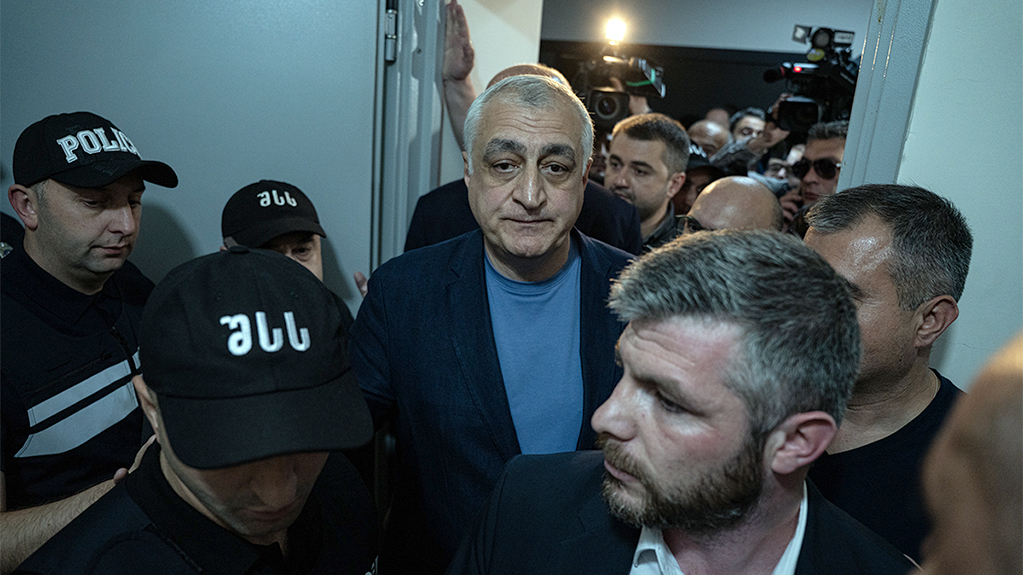“When a parliamentary investigative commission and its chair have questions, everyone is obligated to respect the constitution of the country. If they don’t recognize the legitimacy of a commission, they’ll go to prison,” said Georgian Dream Prime Minister Irakli Kobakhidze regarding the arrest of opposition leaders.
News
“As for Japaridze, when a person violates the law, especially when it involves a criminal offense, there will naturally be a response… These people were brought to this point by the ‘deep state.’ They don’t care about the fate of their agents – whether they’re in or out of prison, what happens to them politically, they don’t care. When you are an agent of the ‘deep state,’ you must accept that if needed, they’ll force you to break the law, violate the constitution – and for that, you may end up in prison. That is the fate of ‘deep state’ agents,” Kobakhidze said.
Georgian Dream established the so-called temporary investigative commission in a one-party Parliament on February 5. Its stated purpose is to investigate the activities of the United National Movement (UNM) government and its officials from 2003 to 2012. Tea Tsulukiani chairs the so-called investigative commission. Georgian Dream aims to ban the UNM and other opposition parties that have not recognized the results of the October 26, 2024, parliamentary elections, refused their mandates, and demand new elections.
Except for former Interior Minister Giorgi Gakharia, no opposition politician summoned to the commission has appeared.
According to Article 349 of the Criminal Code, non-compliance with a request of the provisional investigative commission of the Parliament is a criminal offense and shall be punished by a fine or imprisonment for up a year, with deprivation of the right to hold an official position or to carry out a particular activity for up to three years.
At the request of the so-called investigative commission, the Georgian Dream-led prosecution has charged leaders of the Coalition for Change, including Nika Melia, Nika Gvaramia, Zurab Girchi Japaridze, as well as Lelo for Strong Georgia leaders Mamuka Khazaradze and Badri Japaridze, Strategy Aghmashenebeli chairman Giorgi Vashadze, former United National Movement MP Givi Targamadze, and former Defense Minister Irakli Okruashvili. Initially, bail was set for them, but Okruashvili, Japaridze, Melia, and Gvaramia refused to pay it.
On May 14, Irakli Okruashvili was arrested in the courtroom. Zurab Girchi Japaridze was arrested on May 22.
On May 30, the court was set to review a change in preventive measures for Nika Melia, but police detained him the day before. Melia claimed he was abducted. Later, it was reported that he had allegedly insulted police officers and was arrested under Article 173 of the Administrative Offenses Code. On May 30, Melia was formally sentenced to pre-trial detention for failing to appear before the investigative commission. Nika Gvaramia was arrested on June 13. He did not attend the court hearing and instead turned himself in at Rustavi Prison after the ruling was announced.
Zurab Japaridze and Giorgi Vashadze have already been sentenced to 7 months in prison. Vashadze was arrested on June 24. Mamuka Khazaradze and Badri Japaridze were sentenced to 8 months.

Court verdicts have not yet been announced for Nika Melia, Nika Gvaramia, Irakli Okruashvili, and Givi Targamadze.
Gakharia, Khazaradze, and Gvaramia have been summoned again to the commission. Gakharia was scheduled to be questioned on June 23 regarding the Chorchana checkpoint. However, he informed the commission that he was not in Georgia and requested to attend the meeting remotely. This request was denied. The commission rescheduled his hearing for July 2, and his case has not yet been forwarded to the Prosecutor’s Office for non-compliance.
On June 30, the commission demanded that the imprisoned Khazaradze and Gvaramia appear online. Neither intends to comply. “If Gvaramia or Khazaradze do not join from their cells, we’ll have to send the cases back to the Prosecutor’s Office,” said Tsulukiani.















